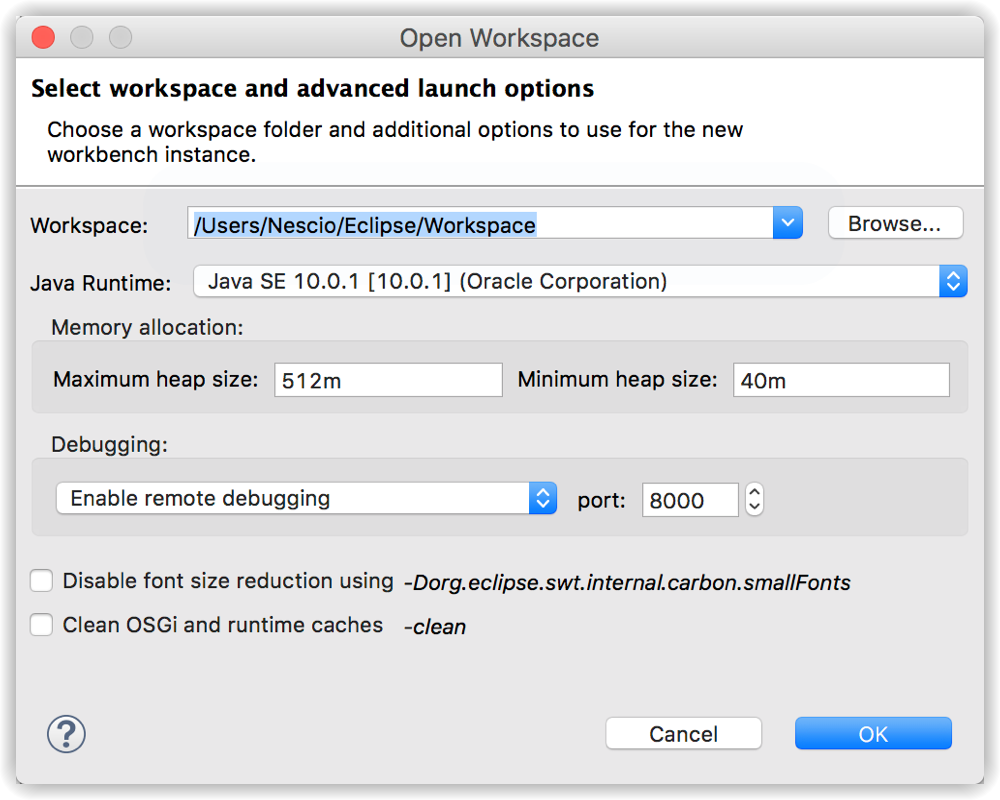OS X Eclipse Launcher
This feature will add an Open Workspace menu item that will detect the application of the running Eclipse instance and start another in a fashion similar to the Switch Workspace command.

Now with all these Eclipse instances up and running it is probably a good idea to be able to tell them apart. The workspace name can be set in Preferences > General > Workspace and it will show up in the icon badge. Otherwise the last segment of the workspace path will be used.
Additionaly it is possible to use the Advanced... menu item that allowing you to specify launch options when opening a new workspace. Using this you can easily debug a new instance of the running IDE without creating a launch configuration.

Note that OS X 10.6 or newer is required as this feature relies on the open command's ability to pass on arguments.
Installing
You can install from the Eclipse Marketplace or drag <img src="https://marketplace.eclipse.org/sites/all/modules/custom/marketplace/images/installbutton.png" style="border: 0px; margin:0px; padding:0px; vertical-align:bottom;"/> into an running Eclipse instance.
If you have a version older than 3.0 installed you must uninstall this before installing version 3.0 or newer. Go to Eclipse > About Eclipse > Installation Details, select "OS X Eclipse Launcher Utility" and click Uninstall.... Automatic update from 2.0 or older to 3.0 or newer will not work and keeping both versions installed will lead to unpredictable behaviour.
Building
Clone the project and from the root execute:
mvn clean verifyWhen successful there will be a Eclipse p2 repository at net.resheim.eclipse.launcher-site/target/repository which you can install from.
License
Copyright © 2012-2020 Torkild Ulvøy Resheim and contributors. All rights reserved. This program and the accompanying materials are made available under the terms of the Eclipse Public License v1.0 which accompanies this distribution, and is available at http://www.eclipse.org/legal/epl-v10.html